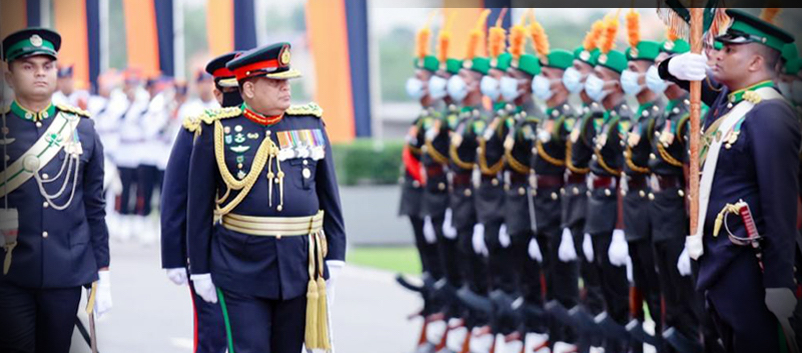
Writing in Foreign Policy, Viruben Nandakumar highlights that despite a change in figureheads, Sri Lanka’s military maintains an inflated role in the running of the state.
“Not only must Sri Lanka’s protesters heed that call and refocus their efforts toward dismantling the militarization of the state, but so too must the international community”, he writes.
The piece details not only the genocidal violence of the Sri Lankan military but also the continued impunity with war criminals such as Sunil Ratnayake being pardoned, despite his involvement in the slaughter of Tamil civilians.
This violence has been paired with an encroaching militarisation of the state and a rise in ethno-nationalist rhetoric. Since the end of the armed conflict, the Tamil homeland has been subject to ever-increasing militarisation and land grabs which has seen these areas be treated as the military’s personal fiefdom.
“Tamil organizations have been clear about a potential way forward for the island. Trapped in cycles of instability and violence—from the decades-long civil war, to the deadly Easter Sunday attacks of 2019, to the current crippling economic crisis—they have called for a fundamental rethinking of Sri Lanka’s political structure” Nandakumar writes.
He adds:
“In their demands, they call for a restructuring of Sri Lankan society that respects “the secular and pluri-national nature of the island and the right to self-determination.” Key to that is restructuring the economy away from the military establishment and breaking the climate of impunity on the island by pursuing accountability. Immediate steps, including releasing land held by the armed forces and curtailing their extensive powers granted by the Prevention of Terrorism Act, have been demanded for decades”.
These calls for demilitarisation must be supported by the international community.
“The country’s south—and Sri Lanka’s global partners—must know that tackling this crisis also means tackling the institutions that are fuelling it”.
Read the full piece here.
